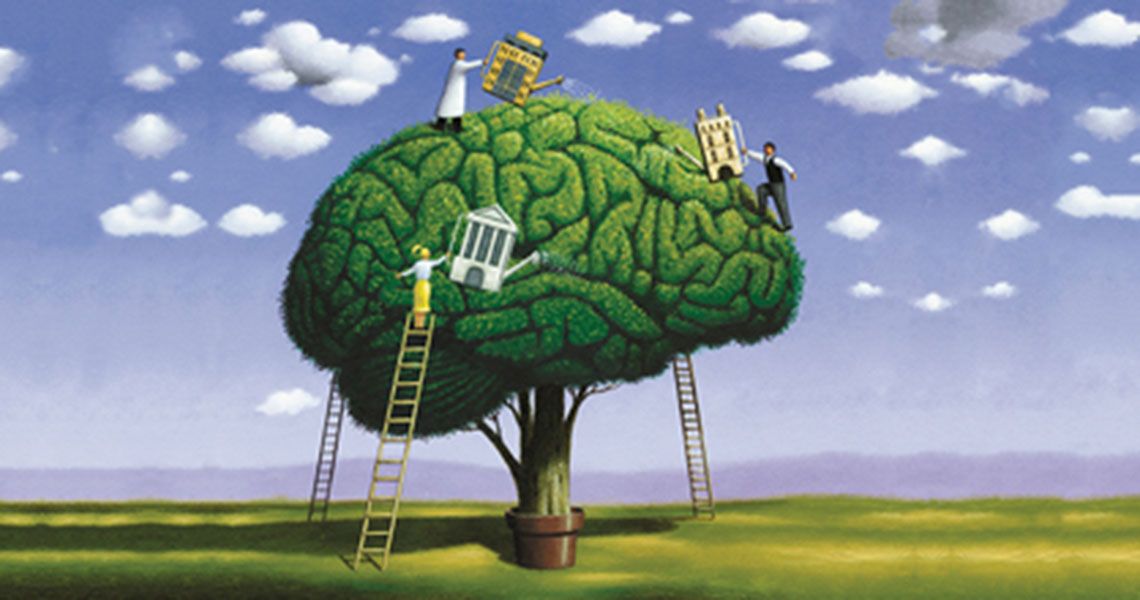The stakes are high in medicine — knowledge or skills that a medical student learns in class today might one day save the life of a patient. That means that the stakes in training future doctors are just as high — and in an era where nearly everything related to health care is changing, medical education is no different.
At GW’s School of Medicine and Health Sciences (SMHS), continued faculty development is a central thread in the fabric of the school. During this time of transition to a revised M.D. program curriculum, faculty members have dedicated themselves to refining the way they relay critical information to their students to ensure maximum retention of the information.
Ray Lucas, M.D., interim associate dean for faculty affairs and professional development, and associate professor of emergency medicine at SMHS; and Ellen Goldman, Ed.D., associate professor of human and organizational learning in the Graduate School of Education and Human Development and associate professor of clinical research at SMHS; are guiding this faculty development effort. Lucas and Goldman have led faculty in reviewing literature, conducting a faculty survey, and initiating discussions and workshops on how best to teach in a changing health care environment while also meeting the requirements identified by the Liaison Committee on Medical Education (LCME) and other accrediting bodies.
Additional resources, including a multi-part series on “Best Practices in Active Learning” and a twice weekly Instructional Design Workshop with “Ten Minute Technology Tips,” have helped faculty members become familiar with iPads and other new technology that has been made available to support instructors. A new instructional designer, Tracy Thompson, dedicated to the M.D. program, was also hired to aid faculty members as they embark upon the implementation of new ways of delivering content. An online module is also being developed on designing effective class sessions with active learning.
Materials have also been created to assist faculty mentors in the Professional Development and Clinical Skills and Reasoning sessions. These include practical tips on such timely topics as: encouraging and assessing reflection, facilitating learning in small groups, and providing coaching to support professional development. Materials on supporting student self-directed learning will also be developed.
This summer, Lucas and Goldman will also introduce a Teaching Consult Service, offering peer-to-peer feedback from Master Teacher Leadership Development Program (MTLDP) graduates, Teaching and Learning Workshops, and Medical Education Research Workshops.
“It is an exciting time as the revised curriculum moves from the idea stage to implementation,” says Lucas. “We’re moving away from much of our traditional lecture format and using active learning strategies to engage our students and make them excited to learn. At the same time, we are making sure to listen to the faculty, and provide support in areas where they feel it’s necessary to reinforce their skills.”
While revising the curriculum and shifting the way courses are taught is no small task, SMHS may have had a head start in this process. For more than a decade, SMHS has offered MTLDP, directed by Goldman. The year-long certificate program enhances teaching skills, fosters scholarship, and develops educational leadership potential. More than 116 SMHS faculty members have completed the innovative program, which delves into theories, tools, and methods for teaching students, residents, fellows, other faculty, patients, and families, as well as content on leading organizational groups and teams dedicated to improving patient care delivery. Many of the MTLDP graduates are serving as block, theme, and discipline directors, which are key roles of the curriculum revision initiative.
“We are very fortunate to have dedicated faculty who are willing to apply innovative teaching methods, while presenting very complex material,” says Goldman.



